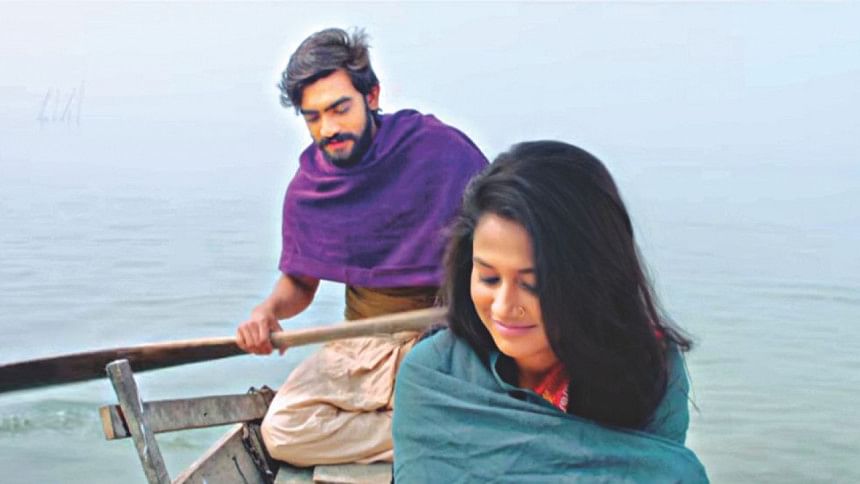Saud delivers a character-rich, wholesome film

Bangladeshi cinema is changing, and that change has become really apparent in the last couple of years. Call it coincidence, call it a pattern – this change has largely been brought about by TV directors venturing into the big screen. From “Aynabaji” to “Oggatonama” and “Halda” or even the blockbuster “Dhaka Attack”, a lot of what has been new and fresh in our mainstream cinema in recent times have come from small-screen helmers. And now, Badrul Anam Saud has joined that club, and what a debut it is! “Gohin Baluchor”, the first film of the seasoned television director was the last film release of 2017 and is a fitting closure to the turnaround year for Dhaka's filmdom.
Without giving any spoilers (because the film is story-driven and is much better watched than read), “Gohin Baluchor” is essentially a story of two villages and their conflict over a resurfacing 'char' (land rising from the river). Saud crafts a believable, character-rich story with a fantastic arc, and tells it with the expertise and assurance of a veteran auteur. The screenplay is taut despite the near two and a half-hour runtime, as the director gets the pace just right for the kind of story he is telling. With his diversity of characters, Saud brings out complex dynamics and emotions into the plot, puts contrasting characters in conflict, is masterful in his build-up of tension and finishes it well.
The film's biggest strength is its characters, and by extension that actors that play them. The acting in this film is a spectacle to say the least, and it is as much the actors' credit as the writer's (Saud, who wrote the story, dialogues and screenplay). Every character is well established, is rounded and has a specific character motivation and arc, and the actors in them are brilliant in their roles. From the veterans Suborna Mustafa (playing Asma, a strong village matriarch), Raisul Islam Asad (Latif, portraying Asma's next-village nemesis) and Fazlur Rahman Babu (playing Ismail, a lowlife drunkard) to the supporting actors Jeetu Ahsan (who plays Hanif, Latif's cold-blooded, shrewd son), Shahadat Hossain (Mizan, Asma's trusted associate), Sharmimala (playing Komola, Asma's meek widowed daughter-in-law) and Runa Khan (Shamima, Hanif's wife), every actor digs deep into their characters and puts out a memorable performance. The characters of the three newcomers – Abu Hurayra Tanvir (playing Asma's son Sujon), Jannatun Noor Moon (Parul, Ismail's daughter) and Neelanjona Neela (playing Latif's daughter Nishi) add a very interesting layer to the story, and the three also do formidably well, especially considering the seasoned co-artistes they have to share screen space with. Moon in particular is a natural, oozing romance and pathos in equal measures whenever the story calls for it.
The film gets so many things so very right that finding flaws in it takes considerable nitpicking. The music (by Emon Shaha), while it has nothing major wrong with it, feels predictable and formulaic, and the background score is also sometimes too obvious and gives away scenes before they play out. My only other gripe is with the deaths in the film; while the first one is gut-droppingly horrifying and raises the stakes to perfectly set the climax up, the last one I feel is a little melodramatic, and counterproductive to the realist approach of the story.
Overall, “Gohin Baluchor” is easily one of the best films of 2017, despite going through setbacks like a delayed release and less-than-great distribution. It is a shame this film is running in less than 30 cinemas, which is ironic because it is exactly the kind of film that could appeal as much to the geographically marginal population as it would do to urbanites. It is the kind of film our cinema needs, but maybe not one it deserves right now.

 For all latest news, follow The Daily Star's Google News channel.
For all latest news, follow The Daily Star's Google News channel. 








Comments